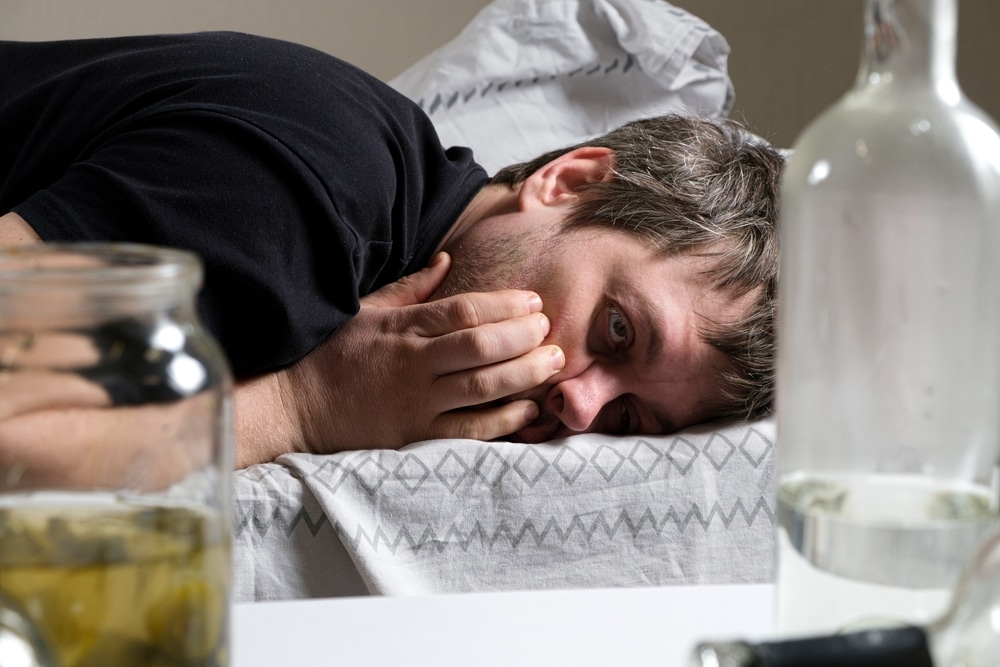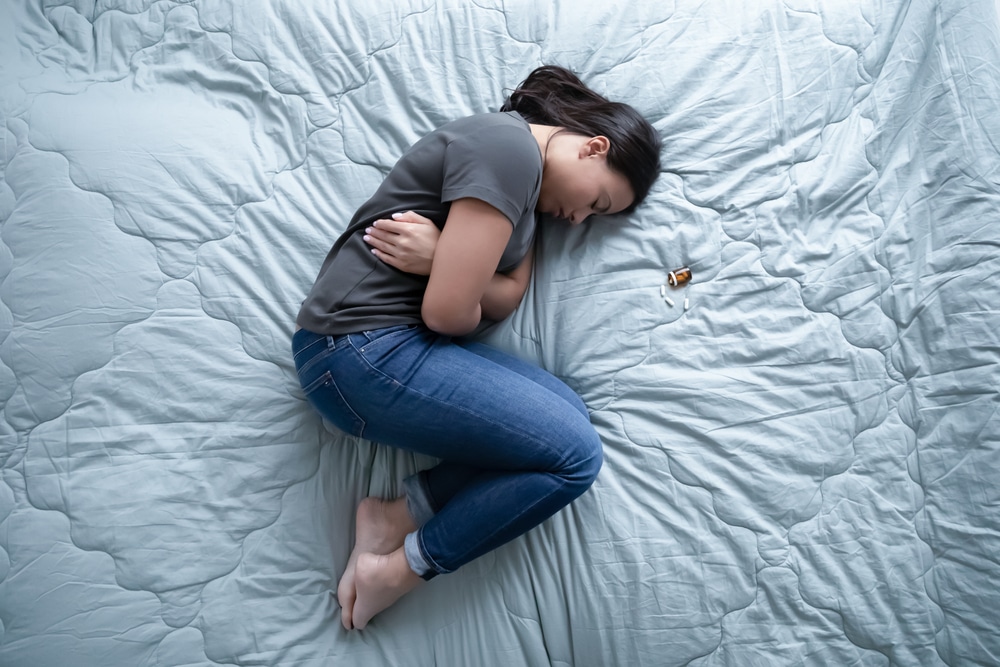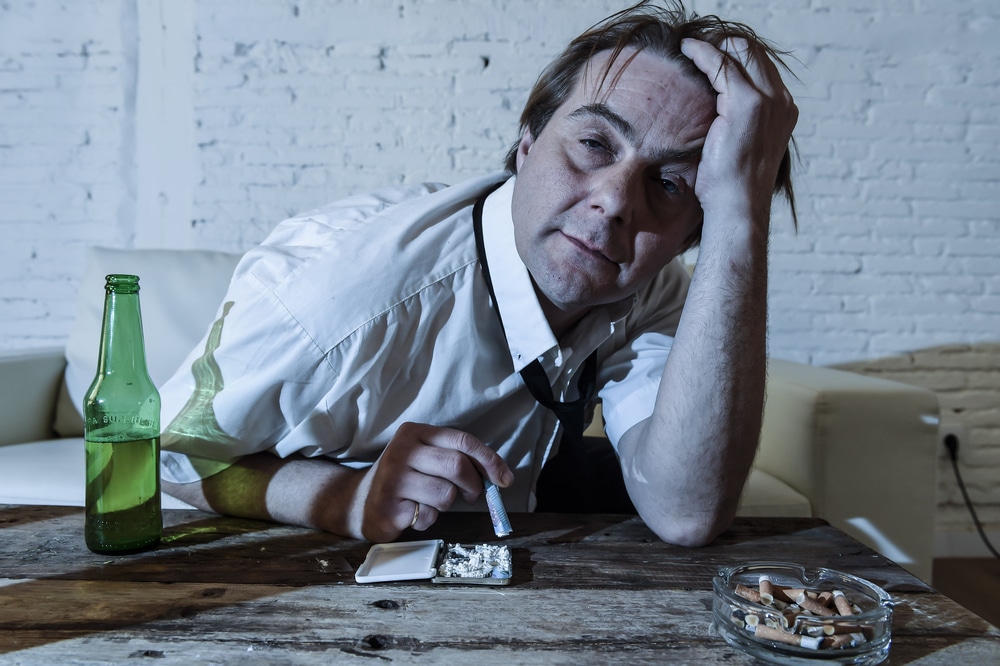

Sleep disorders and addiction share a complex and bidirectional relationship. People who suffer from a sleep disorder may be more likely to abuse drugs or alcohol to try and self-medicate and achieve better sleep. For instance, they may use stimulant drugs to compensate for daytime fatigue caused by lost sleep.
In other cases, they may use drugs because of issues like cognitive impairment. Conversely, people addicted to drugs or alcohol may also suffer from sleep disorders due to the negative effects these substances can have on the body and mind.
There is a strong link between sleep disorders and addiction. A review by the Addiction Science & Clinical Practice found that about 70 % of patients admitted for detox had sleep issues before admission, and 80 % of those with sleep problems connect them to alcohol or illegal drug use.
According to the review, the relationship between the two seems to be bidirectional, with chronic or acute substance use disorders increasing the risk of developing sleeping problems. The review also adds that there's evidence indicating that long-term abstinence from chronic drug or alcohol use can reverse some sleep problems.
One of the most common ailments related to lack of sleep is depression. If you’re wondering whether or not you or someone you know suffers from depression, one way to learn more is to take a depression test.

Addiction is a brain disease. Chronic alcohol or drug use interferes with the brain, changing its chemistry and circuitry. These changes result in compulsive drug use and sleeping problems. Drug and alcohol use disorders can cause short- and long-term sleep issues like insomnia and sleep apnea.
Substance abuse also alters how a person through their sleep stages - messing up the rapid and non-rapid eye movement (REM and NREM). Generally, substance abuse can lead to:
Marijuana interacts with the endocannabinoid system (ECS) by binding to the cannabinoid receptors responsible for many roles, including regulating the sleep-wake cycle. This explains why more than 40% of those trying to quit marijuana experience sleeping problems. Many others experience sleep difficulty, strange dreams, and nightmares too.
Opioids like heroin bind to mu-opioid receptors, a body system that’s also responsible for sleep regulation. In fact, the name morphine or morphia, a medical derivative of opium, comes from Morpheus, the Greek god of sleep and dreams. Opioid drugs can induce sleepiness but also derange sleep by increasing transitions between different sleep stages.
Those going through withdrawal from heroin addiction can experience terrible insomnia. Opioids can also regulate respiration and, when taken in high doses, can severely impede breathing during sleep.
Depressants like alcohol may help people fall asleep, but they often lead to disruptions in sleep patterns and can make it difficult to stay asleep. Chronic alcohol use causes:
Stimulants like cocaine can make it difficult to fall asleep and cause people to wake up frequently at night. The sleep disturbances like insomnia and hypersomnolence mostly happen during cocaine intoxication and withdrawal. Other stimulants like amphetamine trigger dopamine release.

During acute administration, they can decrease total sleep time and sleep efficiency and increase sleep latency and the number of awakenings. In the withdrawal phase, there's a drop in sleep latency and a rise in total sleep time and efficiency.
Withdrawal from drugs can cause sleep disorders like insomnia, or other sleep problems, including restless legs syndrome, strange dreams, or broken sleep. These issues can take a toll on one’s physical and mental health, making a recovery harder. Sleep problems are common when withdrawing from:
Sleep disorders can also lead to substance abuse. Many people with sleep disorders turn to substances as a way to self-medicate or try and improve their sleep. For example:
As discussed earlier, people with sleep may take stimulants like caffeine, cocaine, or nicotine to stay awake during the day and then use alcohol or other drugs to fall asleep at night. Also, those struggling with addiction may disrupt their circadian system and end up with sleep disorders that lead them to use more substances to self-medicated. This can create a dangerous cycle in which they use substances to try and manage their sleep, but the substances themselves make it difficult for them to get the rest they need.
People who stop using drugs and alcohol often have better sleep. This happens because they are no longer disturbed by the side effects of those substances. When people get good sleep, they feel better and can concentrate more easily on their addiction recovery.
At the same time, people who sleep better don't need to use substances to cope with their fatigue. So, improving sleep can help break the cycle of addiction.
If you or a family member or someone you know is struggling with a sleep disorder and substance abuse, help is available. There are many treatment options that can address both issues at the same time. With treatment, it is possible to recover from both a sleep disorder and addiction.